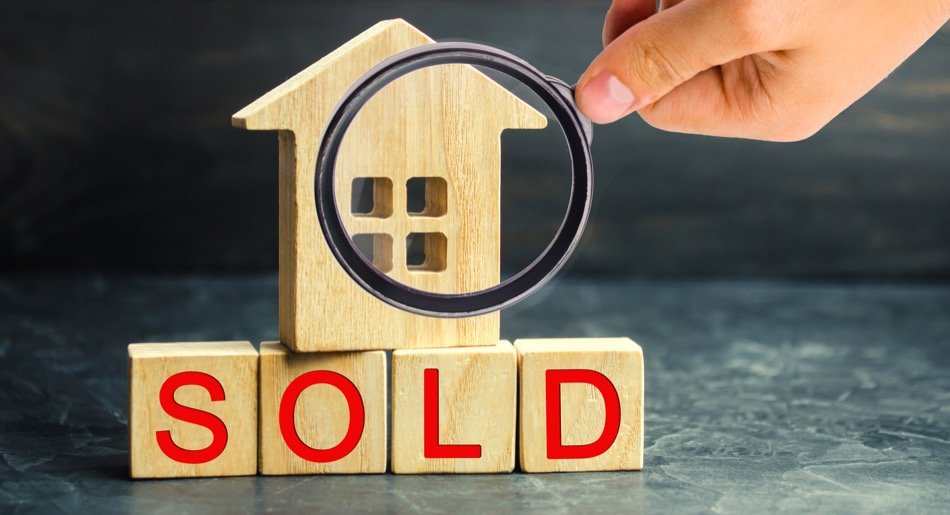What to Expect During Home Closing
Posted by Justin Havre on Monday, October 2nd, 2023 at 7:00am.
 The home closing process, a pivotal part of the home buying or selling journey, involves the transfer of property ownership from seller to buyer. It involves intricate steps, each with its own legal and financial implications. From initial agreements to closing costs to the final handshake, understanding this procedure can be daunting yet crucial. A thorough grasp of the intricacies can save individuals time, money, and unwarranted stress, ensuring a seamless transition to their new abode.
The home closing process, a pivotal part of the home buying or selling journey, involves the transfer of property ownership from seller to buyer. It involves intricate steps, each with its own legal and financial implications. From initial agreements to closing costs to the final handshake, understanding this procedure can be daunting yet crucial. A thorough grasp of the intricacies can save individuals time, money, and unwarranted stress, ensuring a seamless transition to their new abode.
For informational purposes only. Always consult with a licensed real estate professional before proceeding with any real estate transaction.
Sell Your Home With the #1 eXp Realty team in Canada.
Anxious about the home-selling process? Take advantage of our expertise and work with the best real estate teams nationally, right here in Calgary!
What Is a Home Closing?
After going through inspections, negotiations, and all the legal and administrative motions that must happen in order to buy a home, home closing is the final step of the home purchase. Closing is when ownership transfers from the seller to the buyer. Home closing is also when various legal and administrative fees are paid to the people who have been helping with the home purchase along the way.
What Happens During Home Closing?
Home closing occurs when the buyer gives their down payment and payment for closing costs to their lawyer or notary. At the same time, the mortgage lender pays the balance to the lawyer or notary. Then, the lawyer (or notary) gives that payment to the home seller.
Pre-Closing Checklist for Buyers and Sellers
As a buyer or seller, you must have a pre-closing checklist at hand, as it'll help ensure that all essential tasks are completed and that nothing is overlooked during the home closing process. This simple tool can make the difference between a smooth transition and an overwhelming ordeal.
For Buyers:
- Conducting a final walkthrough of the house to verify its condition.
- Furnish proof of homeowners insurance.
- Bring necessary documents, such as a cashier's check, valid photo ID, and the closing disclosure.
For Sellers:
- Notify relevant entities about the change of address.
- Cancel utilities and home insurance policy once ownership changes hands.
What Costs Must Be Paid at Home Closing?
The fees that must be paid at closing vary by sale and location. Typically, buyers will have to pay:
- Real estate lawyer: Legal fees for the home sale are usually around $500.
- Land transfer tax: This is typically a percentage of the purchase price.
- Title insurance: This protects the lender if a dispute over ownership should arise.
- Provincial sales tax on the mortgage default insurance: This amount varies by province.
In addition to the closing costs, the home buyer must pay the rest of their down payment, less the deposit. The down payment is generally 5% for the first $500,000 and 10% for everything over $500,000. The home buyer may also need to pay costs throughout the purchase process. The home inspection and home appraisal process, for example, are both costs that are generally incurred before home closing.
Home buyers must be prepared to pay all of these costs unless the home purchase contract specifies that the seller must cover some of these costs. Home buyers who would like the seller to pay their closing costs must talk to their real estate agent to find out more about how this can happen. This may be easier to accomplish in a buyer's market when the seller has to compete on price to sell their home.
Understanding Closing Costs
Understanding closing costs is a crucial part of any real estate transaction, as they're often a significant expense that can't be overlooked. They comprise various fees incurred beyond the property's price. Homebuyers typically spend between 2% and 5% of the purchase price on these expenses. Examples of costs associated with closing on a home include appraisal fees ($300–$600), inspection fees ($300-plus), title insurance ($400–$1000), and more.
Some costs are optional, like owner's title insurance and points to lower the loan's interest rate. It's important to note that while mortgages with no closing costs may eliminate some fees, they often come with higher interest rates.
What Can You Do to Prepare for Home Closing?
To prepare for home closing, the seller must have all of their finances in order. Their savings must be enough to cover the mortgage down payment, closing costs, fees due throughout the home purchase process, and relocation. Working with a knowledgeable lender and real estate professional is vital to avoid surprise costs midway through the process.
Pre-Closing Walkthrough
Conducting a pre-closing walkthrough is vital, as this is your last chance to ensure that the property is in the agreed-upon condition before finalizing the purchase. During this process, potential homebuyers can verify that any required repairs have been fulfilled and that no new issues have arisen since the inspection.
If they find discrepancies, they must address them immediately with their real estate agent or attorney. They'll help negotiate resolutions, which could involve adjusting the closing price or requiring additional fixes before moving forward. Remember, once you've closed on a house, you're responsible for it—problems and all. It's your future; be an active participant in shaping it.
What Happens on Closing Day
On the day you've been waiting for, there's a flurry of activity as lawyers, real estate agents, and closing agents work together to finalize your property purchase. Typically held at a neutral location like a title company or lawyer's office, the closing meeting is where all involved parties convene to make the transaction official.
The buyer and seller, their representatives, attorneys, and a title company representative are all present. During this meeting, documents are reviewed for accuracy and signatures are collected. Once payment is exchanged and recorded with local authorities, ownership officially transfers from seller to buyer. It's vital that everyone fully understands what they're signing, as these documents have long-term financial implications. After signing off on everything, congratulations—you're now officially a homeowner!
Common Delays and How to Avoid Them
Despite all best efforts, several common issues can delay the finalization of a property purchase, and being aware of them might help mitigate potential setbacks. Most can be remedied or avoided easily, but some home-selling mistakes could cost you a sale in certain situations. Loan complications are one such issue; they might arise from inadequate documentation or discrepancies in credit reports. Buyers can avoid this by securing preapproval for their mortgage and ensuring all paperwork is in order.
Title problems, another common snag, can occur if there's a lien against the property or disputes about ownership. A title search conducted early on will reveal these issues. Unmet contingencies—conditions that must be met before sale—can cause delays. These could range from failed home inspections to low appraisals. However, open communication between parties ensures everyone is on the same page, reducing the chance of delays.
Work With a Qualified Real Estate Professional
Successfully navigating the home closing process is a testament to the diligence and preparation of the buyer. While it's replete with paperwork and legal nuances, a systematic approach can make it manageable and straightforward. Drawing on expert insights, staying informed, and being patient are the cornerstones of a hassle-free home closing experience. As the final documents are signed and keys exchanged, the knowledge gained empowers individuals, making their home acquisition journey both rewarding and memorable.
Sell Your Home
With Confidence.Sell Your Home With the #1 eXp Realty Team in Canada.

For informational purposes only. Always consult with a licensed real estate professional before proceeding with any real estate transaction.

